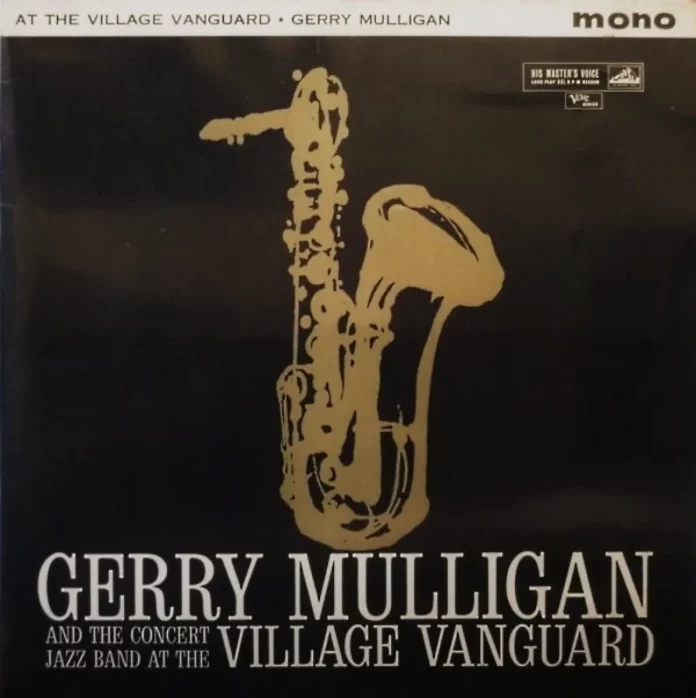Gerry Mulligan can do no wrong these days in public estimation, but it has always seemed to me that he is vastly overrated. Nothing happens here to change this opinion; and although the record has much to commend it, the leader’s contribution is unlikely to give much satisfaction to the searching listener.
To relate the credit side first, it is a pleasant change to hear a newly formed band displaying every appearance of knowing what it is about. There is nothing sloppy about the teamwork here, and the often mellow arrangements – by Bob Brookmeyer (tracks 2 & 6), Al Cohn (1 & 5), Johnny Mandel (3), and Mulligan (4) – are performed in the confident, polished manner that indicates careful rehearsal, and that in turn gives the rewarding illusion of carefree, spontaneous playing. On the executive side, much credit is due to Bill Crow, who supplies throughout a compelling bass part, exact, exciting, and inventive. He is a major cornerstone of the group, performing to such effect that the absence of a pianist is not often noticed. Mel Lewis, one of the best of what my colour-prejudiced ear must call the white drummers, pushes the group along in fine style without sounding tense. So far, in fact, so good. The weaknesses come when we turn our attention to the solo content of the music; and since solo playing is still the icing on the jazz cake, shortcomings here tend to have disastrous consequences.
A great deal of the solo space is used by Mulligan himself. It is no easy task to make the baritone sax sound like an endearing instrument, and Mulligan has never made it so for me. More here even than is customary, he fails to bring out the best characteristics of the horn, and typically he lumbers about (and of course, baritone players invariably lumber) in a bumbling, indefinite sort of manner, very busy travelling without ever seeming to arrive. His piano playing on “Let My People Be” can be overlooked, perhaps. He is, after all, not a pianist, and as leader his little whims should be allowed. It is perhaps fair as well as kind to say that he performs with naive charm.
Other solo contributions come from Brookmeyer, Willie Dennis and Jim Reider, none with anything very pungent to say, and from Clark Terry. Even allowing that Terry was not extending himself unduly, his solo work stands head and shoulders above the others. To him alone, we may feel, is solo playing a real joy, and his spritely comments, though not developed to any profundity, do begin to justify the careful groundwork that is laid in the background. He bounces out of the ensemble like a spring flower in a row of cabbages; and in the chase choruses with Mulligan on “Blueport”, flippant though he pretends to be, one does not have to dig very deep to notice that there is a deal of difference in the roots, too.
Do not reject this record without a hearing, for it is well worth hearing; it is perhaps worth buying only if Mulligan rates strongly in your hierarchy. As concerts go, it is very well recorded.
Discography
Blueport; Body And Soul; Black Nightgown (20 min) – Come Rain Or Come Shine; Lady Chatterley’s Mother; Let My People Be (18¾) min)
Clark Terry, Nick Travis, Don Ferrara (tpt); Bob Brookmeyer, Willie Dennis. Alan Ralph (tbn); Gene Quill (clt, alt); Bob Donovan (alt); Jim Reider (ten); Mulligan (bar, p on “Let My People Be”); Bill Crow (bs); Mel Lewis (d). 1961.
(HMV CLP 1488 12inLP 35s. 3d.)
















